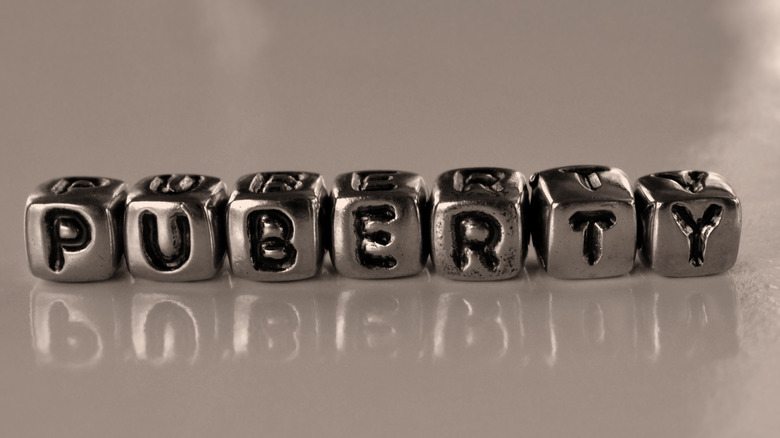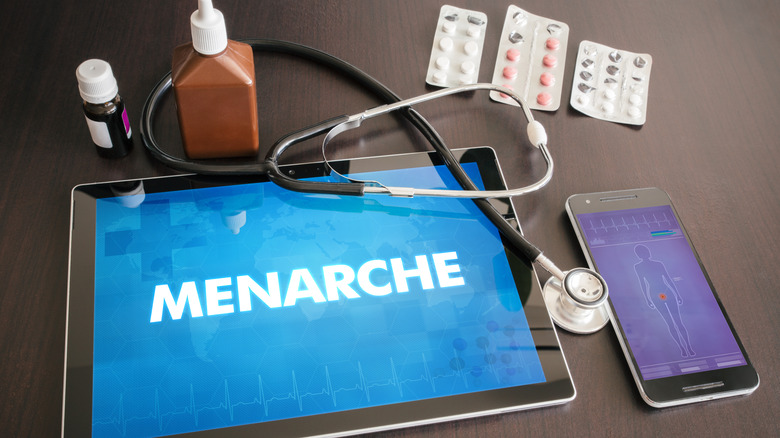What The Age Of Your First Period May Mean For Your Health
Few people enjoy getting their periods, but believe it or not, menstrual cycles are more than just a nuisance. They can provide valuable signs of your overall health and well-being, which is why some experts argue that menstrual cycles should be considered a vital sign. The evidence is in their favor — a 2020 study published in the British Medical Journal indicated that abnormal menstrual cycles are a significant predictor of heart disease and early death.
The Office on Women's Health recommends keeping track of your menstrual cycle. If your periods are regular, not too heavy, and not too long, that is a very good sign when it comes to your health, according to the American College of Obstetricians and Gynecologists (ACOG). You also want to make sure that your period isn't causing so much pain that it interferes with everyday activities, as that can point to certain health problems, such as endometriosis.
The story doesn't end there, however. Do you remember exactly how old you were when you got your first period? Your age can provide additional insight into your health.
An early or late first period may be a sign of health problems
A 2020 report published by the National Center for Health Statistics found that the average age of menarche (a person's first period) went from 12.1 in 1995 to 11.9 between 2013-2017. People who are younger when they get their first period are more likely to have sex at an early age, putting them at a higher risk of unwanted pregnancy. Early menarche (generally defined as younger than age 12) has also been linked with a higher risk of obesity, diabetes, breast cancer, liver disease, mental illness, substance abuse, and early menopause. In addition, it is associated with a higher risk of heart disease, according to the Journal of American Heart Association (JAHA).
Delayed menarche isn't great news, either. JAHA notes that people who get their periods at 13 or later are also at a higher risk of heart disease than people who have their first periods at age 12. If your child doesn't experience their first period by age 15 or within 3 years of starting to develop breasts, the ACOG recommends consulting their doctor.
You can't change the timing of your first period, but the U.S. Centers for Disease Control and Prevention notes that there are steps that everyone can and should take to minimize their risk of health problems, such as exercise, a healthy diet, and getting a good amount of sleep.


